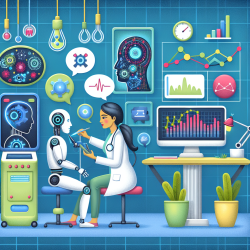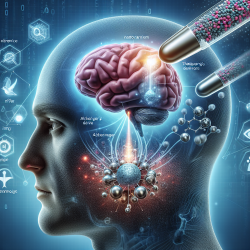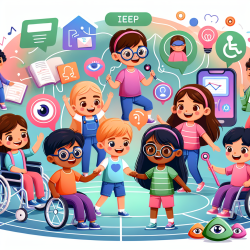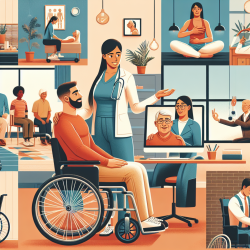Introduction
In the realm of healthcare, the integration of artificial intelligence (AI) and machine learning (ML) is revolutionizing the way we approach patient care, including in the field of speech-language pathology. The research article "Artificial intelligence with multi-functional machine learning platform development for better healthcare and precision medicine" offers insights into how these technologies can enhance precision medicine, providing tailored healthcare solutions that improve outcomes and reduce costs.
AI and ML in Speech-Language Pathology
Speech-language pathologists (SLPs) can harness AI and ML to improve diagnostic accuracy and personalize treatment plans for children with speech and language disorders. By analyzing large datasets, these technologies can identify patterns and predict outcomes, allowing practitioners to tailor interventions to individual needs.
Data-Driven Decision Making
AI and ML enable SLPs to make data-driven decisions by integrating disparate data sources, such as electronic health records (EHRs), and discovering patient-specific patterns. This approach not only enhances diagnostic precision but also supports real-time decision-making, leading to more effective and personalized treatment plans.
Implementing AI and ML in Practice
Practitioners can start by incorporating AI-driven tools that analyze speech and language data to identify areas of concern and track progress over time. Machine learning algorithms can be used to predict the effectiveness of different interventions, helping SLPs choose the most appropriate therapy for each child.
Encouraging Further Research
While the current applications of AI and ML in speech-language pathology are promising, ongoing research is essential to refine these technologies and expand their capabilities. Practitioners are encouraged to engage with research communities and contribute to studies that explore new AI-driven methodologies.
Conclusion
The integration of AI and ML into speech-language pathology offers a pathway to more precise, personalized, and effective care. By embracing these technologies, practitioners can enhance their practice and improve outcomes for children with speech and language disorders.
To read the original research paper, please follow this link: Artificial intelligence with multi-functional machine learning platform development for better healthcare and precision medicine.










